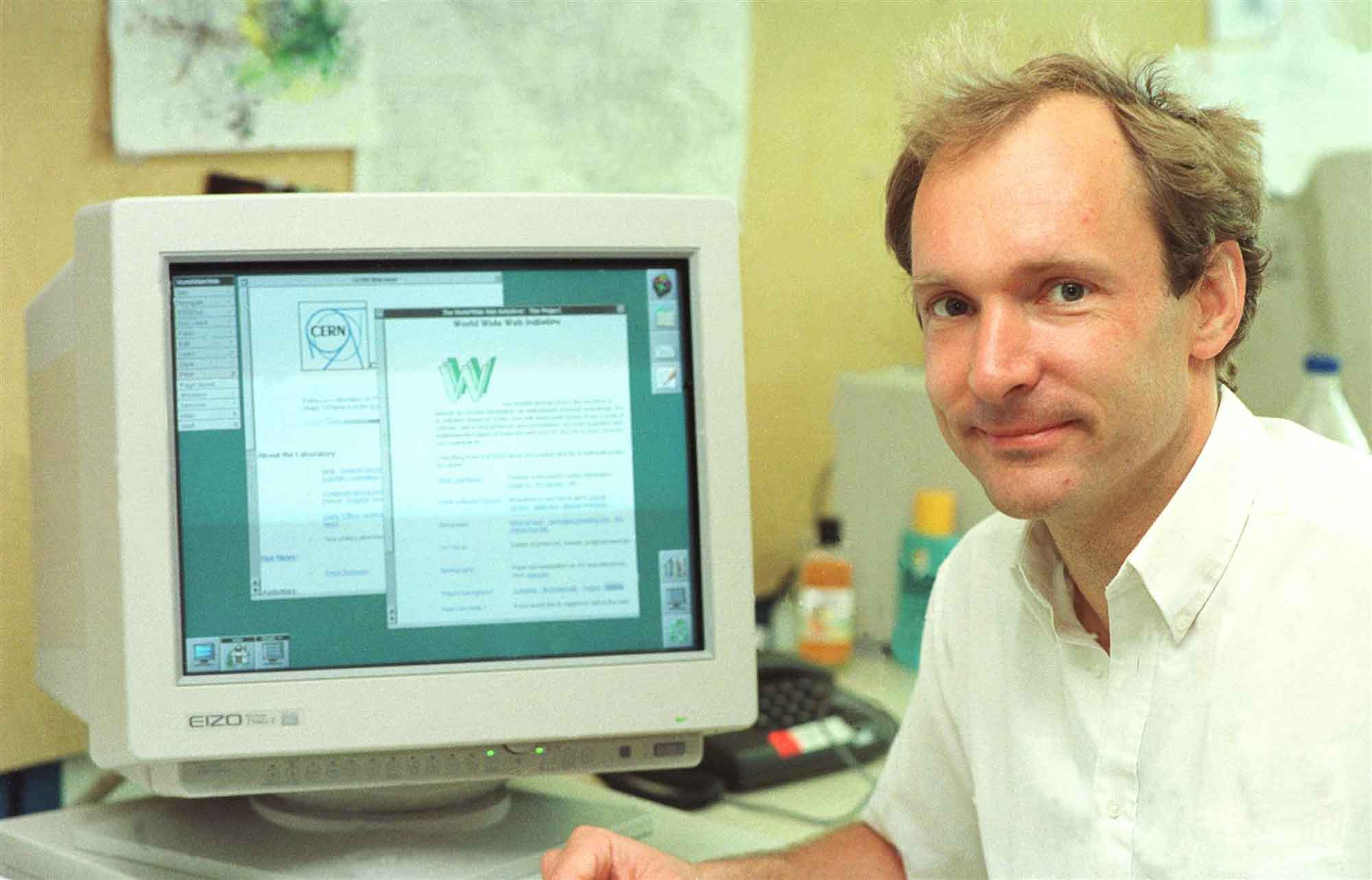
The inventor of the web, Tim Berners-Lee, and others advocated that the underlying code for the web should be made open – publicly available on a royalty-free basis, forever. His employer, CERN, concurred and announced this in April 1993, thus sparking a global wave of creativity, collaboration and innovation on a scale not seen before.
Open web principles
The revolutionary ideas that drove the early web included:
- There should be no central control of the web.
- Non-discrimination. The equitable principle, known as net neutrality, which holds that we are all entitled to the same level of service over the internet.
- Bottom-up design. Code should be developed openly rather than by a small group of experts.
- All computers on the web must speak the same language.
- Consensus. Web standards must be settled and agreed by all.
These ideas gave rise to new approaches in diverse fields, including Open Data, Open Government, Open Access and Free Culture.
Although the term “open web” is frequently used, it appears that it is nowhere succinctly defined. Mark Surman of the Mozilla Foundation refers to it as “a sweeping term – it encompasses technical concepts like open-source code and open standards. It also encompasses democratic concepts like free expression and digital inclusion. But there’s a single underlying principle connecting all these ideas: An open web is a web by and for all its users, not select gatekeepers or governments.”
Open web standards
Tim Berners-Lee moved from CERN to the Massachusetts Institute of Technology in 1994 to found the World Wide Web Consortium (W3C), an international community where member organisations, a full-time staff and the public work together to develop web standards. He remains Director to this day.
W3C standards “define an Open Web Platform for application development that has the unprecedented potential to enable developers to build rich interactive experiences, powered by vast data stores, that are available on any device.”
Open web advocates
There are many open web advocates and champions representing many different types of organisation and approaching the topic from various standpoints. Some prominent examples include:
- The World Wide Web Foundation was founded in 2009 by Tim Berners-Lee to advance the open web as a public good and a basic right. It is an independent, international organisation fighting for digital equality by securing policy change.
- The non-profit Mozilla Foundation believes the internet must always remain a global public resource that is open and accessible to all. It is the sole shareholder in the Mozilla Corporation, the maker of Firefox and other open source tools.
- The Wikimedia Foundation is a non-profit organisation that hosts Wikipedia and other free knowledge projects: “We want to make it easier for everyone to share what they know. … We protect the values and policies that allow free knowledge to thrive”.
Threats to the open web
The two major threats to maintaining the open web ideal are government control (whether to exert political control or to maintain security or) and commercial control.
The effects of commercial pressure were first apparent after the so-called “first browser war”. The web’s transition to the mainstream and the internet boom of the 1990s was in large part driven by the appearance of the intuitive, user-friendly graphical browser Mosaic, developed at the National Center for Supercomputing Applications (NCSA). It was not open source, but non-commercial use was free of charge and it was rapidly adopted by early web users worldwide. Netscape Navigator, later developed by many of the original Mosaic authors, improved on Mosaic’s usability and reliability and by 1995 dominated the web.
Not wanting to be left out of the party, Microsoft had licensed Mosaic to create Internet Explorer. IE diverged from W3C standards (as did other browsers of the time) but built up market share thanks to Microsoft’s huge installed user base. When IE 4.0 was released in 1997, integrated with Windows which had over 90 per cent of the desktop operating system market, it changed the game. The browser war ended with IE having no remaining serious competition, halting the rapid innovation in web browsers.
The early utopian promise of the web was that it would act as a decentralising and democratising force, empowering the little man. This certainly came to pass, but the commercial fruits of the rapid innovation that followed have been directed into fewer and fewer pockets – largely due to the so-called “network effect”.
Today the open web is threatened by the dominant technology companies like Facebook, Google and Apple who have an economic interest in creating their own “walled gardens” that they control and monetise. There is a growing centralisation of how we access things on the web: “the disintermediating magic of the internet is mostly used up.”
Further reading
Tim Berners-Lee: History of the Web
Mark Surman: What is the open web and why is it important?
Tantek Çelik: What is the Open Web?
Zac Rosen: The open web is not going away
Russell Brandom: The internet we left behind
Nick Holmes is Editor of the Newsletter. Email nickholmes@infolaw.co.uk. Twitter @nickholmes.